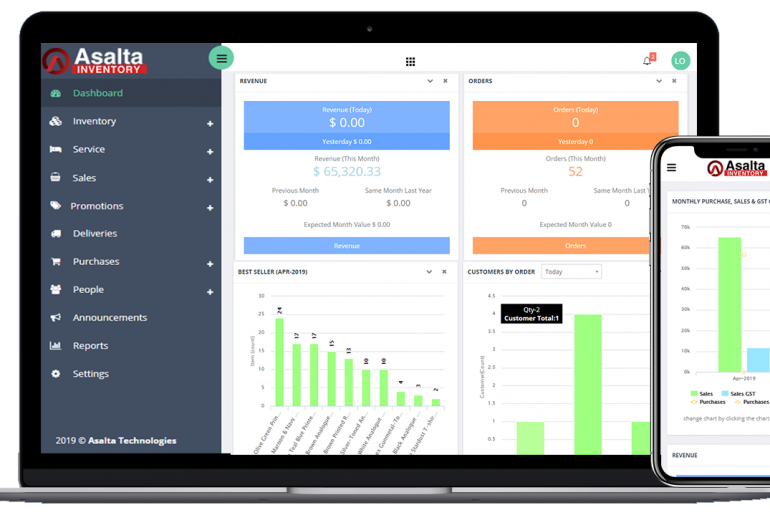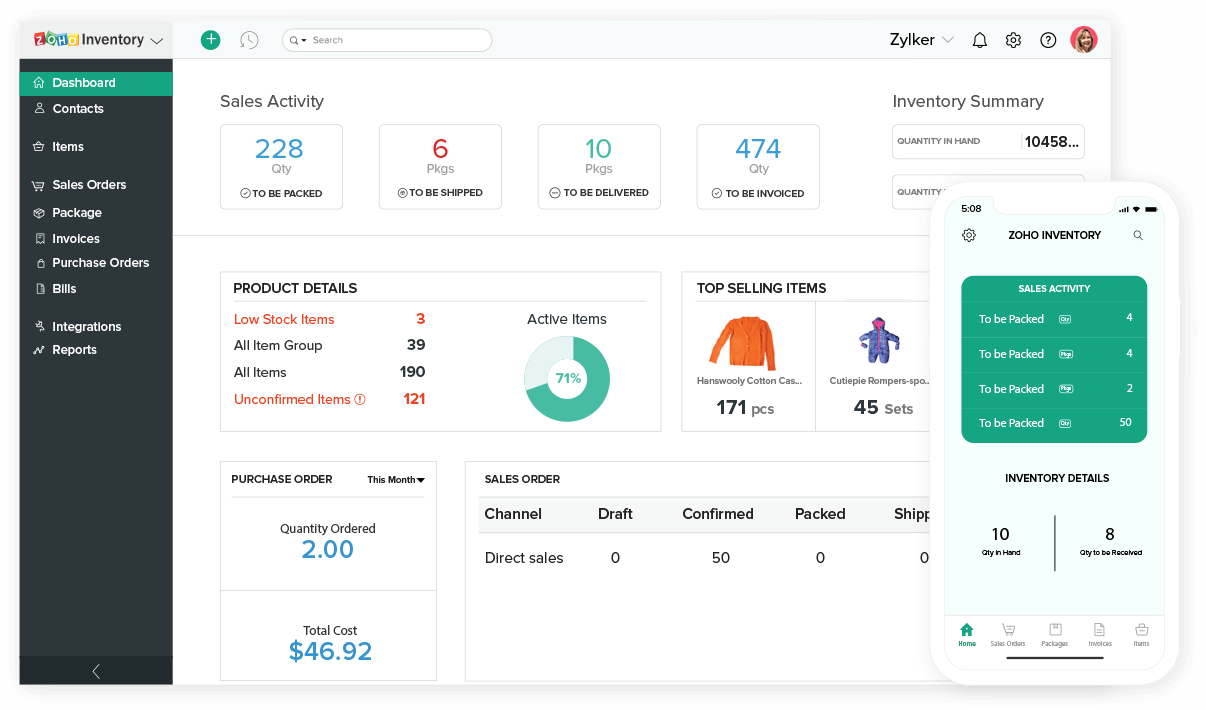In the competitive world of small business, efficient inventory management is paramount. Best inventory accounting software for small business empowers entrepreneurs to streamline their operations, reduce costs, and optimize profitability. Discover the key features, benefits, and top software options to elevate your inventory management strategy.
With best inventory accounting software for small business, you gain real-time visibility into your stock levels, automate inventory tracking, and make informed decisions to drive business growth.
Introduction
Inventory accounting is crucial for small businesses as it provides an accurate picture of the value and quantity of inventory on hand. This information is essential for making informed decisions about purchasing, pricing, and production. However, managing inventory can be a challenge for small businesses due to limited resources and expertise.
Challenges in Inventory Management
Small businesses often face several challenges in managing inventory, including:
- Limited storage space: Small businesses may not have adequate storage space to accommodate large amounts of inventory.
- Lack of expertise: Small business owners may not have the necessary expertise in inventory management, leading to errors and inefficiencies.
- Manual processes: Small businesses often rely on manual processes to manage inventory, which can be time-consuming and prone to errors.
- Fluctuating demand: Small businesses may experience fluctuating demand for their products, making it difficult to maintain optimal inventory levels.
Key Features to Consider

When selecting inventory accounting software for small businesses, consider these key features to streamline inventory management processes:
These features provide businesses with comprehensive tools to track inventory levels, manage stock, and optimize inventory operations.
Real-time Inventory Tracking, Best inventory accounting software for small business
Real-time inventory tracking allows businesses to monitor stock levels in real time. This ensures accurate inventory data, reduces the risk of overstocking or understocking, and enables businesses to make informed decisions based on current inventory status.
Stock Management
Stock management features help businesses manage stock levels efficiently. This includes setting reorder points, managing stock transfers, and tracking stock movements. By optimizing stock levels, businesses can reduce inventory costs and improve cash flow.
Inventory Valuation
Inventory valuation features enable businesses to accurately value their inventory using different methods, such as FIFO, LIFO, and weighted average cost. Accurate inventory valuation is crucial for financial reporting and tax compliance.
Reporting and Analytics
Reporting and analytics features provide businesses with insights into their inventory performance. This includes reports on inventory turnover, stock levels, and profitability. By analyzing inventory data, businesses can identify trends, optimize inventory levels, and make informed decisions.
Integration with Other Systems
Integration with other business systems, such as accounting software or e-commerce platforms, streamlines inventory management processes. This eliminates manual data entry, reduces errors, and improves overall efficiency.
Comparison of Software Options

Choosing the best inventory accounting software for your small business can be overwhelming, given the vast array of options available. To help you make an informed decision, we have compiled a comprehensive comparison of the top software options, considering key features, pricing, and customer reviews.
The table below provides a detailed overview of each software’s capabilities, pricing structure, and user feedback. Use this information to compare and contrast the different options and select the software that best aligns with your specific needs and budget.
Features
When comparing inventory accounting software, consider the following key features:
- Inventory Management: Ability to track inventory levels, set reorder points, and manage multiple warehouses.
- Reporting and Analytics: Provides detailed reports on inventory performance, trends, and profitability.
- Integration: Integrates with other business software, such as accounting, e-commerce, and CRM systems.
- Scalability: Can accommodate the growth of your business and handle increasing inventory volumes.
- Ease of Use: User-friendly interface and intuitive navigation.
Pricing
Inventory accounting software pricing can vary widely depending on the features offered and the number of users. Consider the following pricing models:
- Subscription-based: Pay a monthly or annual fee for access to the software.
- Per-user pricing: Pay a fee for each user who accesses the software.
- One-time purchase: Pay a one-time fee for perpetual access to the software.
Customer Reviews
Read online reviews from other small businesses to gain insights into the strengths and weaknesses of each software option. Consider factors such as:
- Overall satisfaction: How satisfied are users with the software?
- Customer support: How responsive and helpful is the customer support team?
- Ease of implementation: How easy was it to set up and use the software?
- Value for money: Is the software worth the investment?
Benefits of Using Inventory Accounting Software
For small businesses, implementing inventory accounting software can bring numerous advantages, transforming their operations and enhancing efficiency.
By leveraging inventory accounting software, small businesses can save time, reduce costs, and improve efficiency in several ways.
Save Time
- Automating inventory tracking and management tasks eliminates manual processes, reducing the time spent on inventory-related activities.
- Real-time inventory visibility enables businesses to quickly and easily access up-to-date inventory information, reducing time spent on searching and reconciling inventory data.
Reduce Costs
- Improved inventory management practices can help businesses minimize waste and overstocking, leading to cost savings.
- Automated inventory tracking can reduce the risk of human errors, which can result in costly mistakes and losses.
Improve Efficiency
- Centralized inventory data provides a single source of truth, improving collaboration and communication within the business.
- Real-time inventory updates allow businesses to make informed decisions quickly, optimizing inventory levels and reducing lead times.
Implementation and Best Practices
Implementing inventory accounting software for small businesses is a crucial step towards streamlining inventory management and improving financial accuracy. To ensure a successful implementation, follow these steps:
- Define Your Needs: Determine the specific requirements of your business, such as inventory tracking methods, reporting capabilities, and integration with other systems.
- Research Software Options: Explore different software options available, considering factors like features, pricing, and user reviews.
- Choose and Purchase Software: Select the software that best aligns with your needs and budget. Purchase the necessary licenses and subscriptions.
- Data Import and Setup: Import your existing inventory data into the software and configure settings such as units of measurement, cost calculation methods, and inventory locations.
- Train Staff: Provide training to your staff on how to use the software effectively. This includes entering transactions, generating reports, and managing inventory.
- Go Live: Launch the software and begin using it for your daily inventory operations.
Best Practices for Using Inventory Accounting Software
To maximize the benefits of your inventory accounting software, follow these best practices:
- Maintain Accurate Inventory Records: Regularly update inventory levels to ensure accuracy and prevent overstocking or stockouts.
- Use Real-Time Tracking: Utilize software features that provide real-time inventory visibility to make informed decisions.
- Generate Regular Reports: Generate inventory reports to track inventory performance, identify trends, and make adjustments as needed.
- Integrate with Other Systems: Connect your inventory accounting software with other business systems, such as accounting or e-commerce, to automate processes and improve efficiency.
- Monitor and Adjust: Regularly review inventory levels, reports, and software settings to identify areas for improvement and make necessary adjustments.
Conclusion

Selecting the best inventory accounting software is a crucial decision for small businesses seeking to optimize their inventory management processes. By considering the key features, comparing software options, and implementing best practices, businesses can effectively track and manage their inventory, leading to increased efficiency, reduced costs, and improved profitability.
For small businesses looking to choose the best inventory accounting software, we recommend the following:
Recommendations for Choosing Software
- Identify your specific business needs and requirements.
- Research and compare multiple software options.
- Consider the software’s ease of use, functionality, and scalability.
- Read reviews and testimonials from other users.
- Request a demo or free trial to experience the software firsthand.
- Ensure the software integrates with your existing business systems.
- Consider the vendor’s reputation, support, and pricing.
Ending Remarks
Embracing best inventory accounting software for small business is a transformative step towards streamlining operations, enhancing efficiency, and maximizing profits. By leveraging the right software, small businesses can unlock the power of data-driven inventory management and propel their business to new heights.
Detailed FAQs: Best Inventory Accounting Software For Small Business
What are the key features of best inventory accounting software for small business?
Key features include real-time inventory tracking, automated purchase orders, barcode scanning, multi-location inventory management, and reporting and analytics.
How can best inventory accounting software for small business benefit my business?
Benefits include reduced costs, improved efficiency, increased accuracy, and enhanced customer satisfaction.
What are some of the top best inventory accounting software for small business options?
Top options include QuickBooks Online, Xero, Zoho Inventory, and NetSuite.